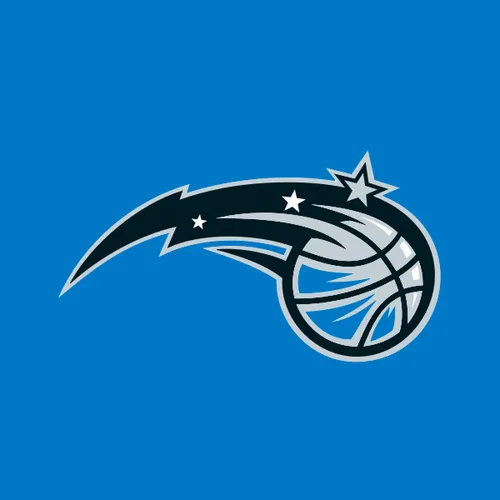







Software Development & Engineering Jobs in the Sports Industry: The Ultimate Quick Guide

Introduction
Technology has become an integral part of the sports industry, playing a crucial role in the way games are played, analyzed, and enjoyed by fans. Software development and engineering careers in the sports industry are in high demand, offering opportunities for professionals to apply their skills in a dynamic and exciting field. This comprehensive guide will help you understand the various software development and engineering roles in the sports industry, as well as the qualifications, responsibilities, and skills required for success in these roles.
Artificial Intelligence (AI)
AI professionals in the sports industry work on developing and implementing algorithms, machine learning models, and other intelligent systems to enhance various aspects of sports, such as player performance analysis, injury prevention, and fan engagement. A strong background in computer science, AI, and machine learning is required for this role.
Key skills for AI professionals in the sports industry include programming languages (e.g., Python, R), machine learning libraries and frameworks (e.g., TensorFlow, PyTorch), and a deep understanding of AI algorithms and models. Staying up-to-date with the latest AI research and technologies is also crucial.
Dive deeper into AI careers in sports here and see if there are any AI vacancies available here.
Backend Development
Backend developers in the sports industry focus on building and maintaining the server-side infrastructure and services that power sports applications, websites, and platforms. They work closely with frontend developers to ensure seamless communication between client-side and server-side components. A background in computer science, software engineering, or a related field is typically required.
Important skills for backend developers in the sports industry include proficiency in server-side programming languages (e.g., Java, PHP, Ruby), database management systems (e.g., MySQL, PostgreSQL), and web application frameworks (e.g., Django, Laravel, Rails). Familiarity with APIs, microservices, and scalable architectures is also essential.
Read more about backend development jobs in sports here and view related opportunities here.
Cloud Engineering
Cloud engineers in the sports industry work on designing, deploying, and managing cloud-based infrastructure and services to support sports applications, platforms, and data storage. They may collaborate with development, IT, and operations teams to ensure optimal cloud performance, security, and cost-efficiency. A background in computer science, IT, or a related field is typically required.
Key skills for cloud engineers in the sports industry include expertise in cloud platforms (e.g., AWS, Azure, Google Cloud), infrastructure-as-code tools (e.g., Terraform, CloudFormation), and scripting languages (e.g., Python, Bash). Knowledge of cloud security, networking, and cost optimization is also important.
Learn more about a career in cloud engineering here and see sports cloud engineering jobs here.
Data Analysis
Data analysts in the sports industry are responsible for collecting, processing, and analyzing various types of sports data, such as player performance, fan engagement, and business operations. They may use statistical methods, data visualization tools, and machine learning techniques to derive insights and support decision-making. A background in statistics, data science, or a related field is typically required.
Important skills for data analysts in the sports industry include programming languages (e.g., Python, R), data manipulation libraries (e.g., pandas, NumPy), data visualization tools (e.g., Tableau, D3.js), and knowledge of statistical methods and machine learning techniques. Strong communication and problem-solving skills are also essential.
Take a deeper look at data analysis in sports here and uncover related job opportunities here.
DevOps
DevOps professionals in the sports industry work at the intersection of development and operations to ensure efficient collaboration between teams and streamlined software delivery processes. They are responsible for implementing and maintaining continuous integration, continuous delivery (CI/CD) pipelines, and monitoring and optimizing system performance. A background in computer science, software engineering, or IT is typically required.
Key skills for DevOps professionals in the sports industry include expertise in CI/CD tools (e.g., Jenkins, GitLab CI), containerization platforms (e.g., Docker, Kubernetes), and infrastructure-as-code tools (e.g., Terraform, Ansible). Strong knowledge of software development best practices, system administration, and cloud platforms is also important.
Check out more about DevOps careers in sports here and find relevant sports vacancies here.
Frontend Development
Frontend developers in the sports industry create and maintain the user interfaces and user experiences of sports applications, websites, and platforms. They collaborate with designers, backend developers, and other team members to ensure seamless functionality and visual appeal. A background in computer science, web development, or a related field is typically required.
Important skills for frontend developers in the sports industry include proficiency in HTML, CSS, and JavaScript, as well as experience with frontend frameworks and libraries (e.g., React, Angular, Vue.js). Knowledge of UI/UX design principles, cross-browser compatibility, and responsive design is also essential.
Discover more about a career in frontend development in sports here and see related roles here.
Full Stack Development
Full stack developers in the sports industry are responsible for both frontend and backend development, handling a wide range of tasks from user interface design to server-side infrastructure. They may work on developing sports applications, platforms, and websites, and are expected to have a strong understanding of the entire software development stack. A background in computer science, software engineering, or a related field is typically required.
Key skills for full stack developers in the sports industry include proficiency in frontend technologies (e.g., HTML, CSS, JavaScript), backend technologies (e.g., Java, Python, Ruby), and web application frameworks (e.g., Django, Laravel, Rails). Familiarity with databases, APIs, and cloud platforms is also important.
Uncover more about full stack development jobs in sports here and see currently-hiring jobs here.
Mobile Development
Mobile developers in the sports industry create and maintain sports applications for mobile devices, such as smartphones and tablets. They may develop native applications for specific platforms (e.g., iOS, Android) or cross-platform applications using frameworks like React Native or Xamarin. A background in computer science, mobile development, or a related field is typically required.
Important skills for mobile developers in the sports industry include expertise in mobile programming languages (e.g., Swift, Kotlin), mobile development frameworks (e.g., React Native, Xamarin), and mobile app design principles. Knowledge of mobile platform-specific APIs, performance optimization, and app store submission processes is also essential.
Do a deeper dive into sports mobile development careers here and see relevant job listings here.
Network Engineering
Network engineers in the sports industry are responsible for designing, implementing, and maintaining the network infrastructure that supports sports organizations, applications, and platforms. They may work on local area networks (LANs), wide area networks (WANs), or cloud-based networks, ensuring optimal performance, security, and reliability. A background in computer science, IT, or a related field is typically required.
Key skills for network engineers in the sports industry include expertise in networking protocols (e.g., TCP/IP, BGP), network devices (e.g., routers, switches, firewalls), and network management tools (e.g., SNMP, NetFlow). Knowledge of network security best practices, cloud networking, and network troubleshooting is also important.
Look further into network engineering careers in sports here and see all of our vacancies tagged “network engineering” here.
Software Engineering
Software engineers in the sports industry develop and maintain a wide range of sports applications, platforms, and systems, from game analytics tools to fan engagement platforms. They are responsible for designing, coding, testing, and optimizing software solutions, and may work in a variety of programming languages and technologies. A background in computer science, software engineering, or a related field is typically required.
Important skills for software engineers in the sports industry include proficiency in programming languages (e.g., Java, C++, Python), software development methodologies (e.g., Agile, Scrum), and version control systems (e.g., Git). Strong problem-solving, communication, and teamwork skills are also essential for success in this role.
Learn more about the vast software engineering careers available in sports here and see all of our related job opportunities here.
Conclusion
The sports industry offers numerous opportunities for software development and engineering professionals to apply their skills in a dynamic and engaging environment. Whether you're passionate about AI, mobile development, or software engineering, there's a role for you in the world of sports. By understanding the various roles available, as well as the qualifications, responsibilities, and skills required for success, you can make an informed decision about your career path and take the first steps towards a rewarding and fulfilling career in the sports industry.



























